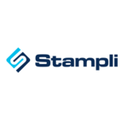The Invoicer's Handbook: How to Manage Invoices and Keep Your Sanity
Invoice management is a crucial function for any business that receives invoices from providers in order to effectively track and process invoice documents.
In this article, we’ll explain how invoice management software can help you manage every step of the invoice management process, from receiving the invoice to paying and archiving it, while avoiding manual time-consuming tasks and human error. We’ll also compare 6 leading invoice management systems so you can make the best informed decision for your business.
What is Invoice Management?
Invoice Management is what businesses use to track and settle supplier invoices. This process involves the following :
- Receiving an invoice from a third party
- Extracting the invoice information
- Validating it as legitimate and verifying invoice information
- Paying the provider
- Archiving the invoice and payment in company records
In large organizations, invoice management is usually part of the Accounts Payable process. Because invoice management involves many steps and several parties on different teams, there is a lot of room for error and it is easy to lack coordination between teams. This can sometimes lead to delays in clearing and paying invoices.
Fortunately, faster and more accurate ways are now available to handle invoices. Invoice management systems help businesses automate invoice management to reduce chances of human error and improve productivity and accuracy. When an order is placed, the software can automatically generate an internal payment calculation from the details of the contract signed between the vendor and the company.
What Are The Benefits Of Invoice Management?
Finance departments can quickly become overwhelmed by the high number of invoices that need to be cleared and processed on a daily basis. This is especially true in large organizations that deal with freelancers, suppliers, software providers, and many more third-party stakeholders.
Invoice Management has quickly become an essential tool for businesses of all sizes and industries who want to have greater control over the way they handle the invoice management process.
Here are some of the greatest benefits of invoice management for your business:
- Regular quick processing of invoices: Speeds up the billing cycle, ensuring timely payments.
- Prevention of errors and loss of data: Reduces inaccuracies in billing and financial records.
- Elimination of payment delays: Keeps cash flow consistent and reliable.
- More time for value-added tasks: Frees up resources to focus on strategic initiatives.
- Preservation of supply chain movement: Maintains good relationships with vendors and suppliers.
- Cost savings and better compliance: Minimizes the risk of financial penalties and improves adherence to regulatory standards.
- Improved visibility and control: Offers better insight into financial operations.
While individual invoice management tools offer several benefits, businesses looking to comprehensively enhance their financial operations may consider exploring enterprise billing systems.
Enterprise billing solutions offer an advanced approach to handling not just invoices but the entire spectrum of financial transactions. They streamline processes, integrate seamlessly with other systems, and provide real-time insights into financial health. To discover more about how enterprise billing systems can boost your business efficiency, read our detailed article on Boosting Business Efficiency through enterprise billing.
What Are The Most Important Features Of Invoice Management Systems?
Let’s take a closer look at the 4 most important features you need to take into account when investing in an invoice management software.
1. Invoice Handling Capabilities
When choosing the right invoice management software for your business, you should really make sure it will effectively help you track, verify and approve payments on time, every time. This means it should have features like automatic reminders and notifications, recurring or periodic billing, invoice emailing and tracking, reporting, and more.
It should also be capable of auto-categorizing invoices as per date, type, vendor, etc.
2. Automated Approval Workflow
This feature is crucial if you really want to save time during the invoice management process. It helps you fast-track multi-level approval structures by sending approval notifications to the manager or CEO in charge of approving payments. This feature improves agility and efficiency of your workflow.
3. Real-time Reporting
Invoice management software makes it easy and quick to visualize real-time metrics and reportings in order to monitor expenses, pay invoices on time, make instant reimbursements, etc. It also helps you control budgets, approve requests and eliminate tedious administrative tasks.
4. Integration With Other Accounting Software
In order to be relevant, invoice management systems need to integrate with other apps and software so you can centralize data, and easily maintain and access records whenever you need.
Make sure the system you’re about to invest in enables seamless integration with other accounting and management systems like Xero, Quickbooks, Sage, Netsuite, etc. so you never have to enter data manually.
Now let’s take a look at our selection of invoice management software! ⤵️
FreshBooks
FreshBooks helps small businesses and freelancers send and receive invoices, track expenses, manage projects and clients, and view reports. It offers a 30-day trial and four different plans. Accounts Payable is currently available on Premium and Select FreshBooks plans.
Features
- Tools to send and receive invoices
- Mobile app
- Accounts Payable tied to Cash Flow Statement and Profit & Loss Report
- Multiple languages and currencies
- Integration with third-party apps
- Possibility to create, manage, and edit vendors and bills
- Online approvals
Pros and Cons
| Pros | Cons |
|
|

FreshBooks
Airbase
Airbase is a comprehensive spend management platform that helps businesses of all sizes consolidate card payments, bill payments, and reimbursements on one system.
To improve accuracy and save time, Airbase uses accounting automation that covers the whole transaction lifecycle from beginning to end.
Features
- Invoice processing and generation
- Payment tracking
- KPIs
- Due dates
- Batch processing
- One consistent platform for all payment types
- Approvals
- Electronic payments
Pros and Cons
| Pros | Cons |
|
|

Airbase
Stampli
Stampli is specifically designed to have full control and visibility over corporate spendings. It brings together accounts payable communications, documentation, corporate cards, and payments all in one place. This software allows stakeholders to collaborate and get questions answered quickly.
Features
- Seamless integration
- Invoice processing
- Audit trails
- Smart capture
- Collaboration hub
- Accounting integration
- Batch processing
- Activity tracking
Pros and Cons
| Pros | Cons |
|
|

Stampli
Spendesk
Spendesk is specifically designed for Accounts Payable and reduces the need for manual processing. It gives businesses complete control over the entire invoicing lifecycle by automating the invoice processes and approval workflows.
Features
- Automated receipt capture
- Real-time spend insights
- Invoice automation
- Approval
- Payments monitoring
- Pay directly on the platform
- Automated invoice recovery and matching
- Centralized invoice management
Pros and Cons
| Pros | Cons |
|
|

Spendesk
SAP Concur
SAP Concur is an integrated travel, expenses, and invoice management software. This means it provides a complete picture of your company’s finances. SAP Concur is used by small and Fortune 500 corporations alike.
Features
- Invoice capture
- Integration
- Payment providers
- Three-way match
- Payment solution
- Purchase requests
- Reporting
- Credit card integration
- ERP/accounting integration
Pros and Cons
| Pros | Cons |
|
|

Concur Expense
Bonsai
Bonsai is an all-in-one business & financial management solution specifically geared toward freelancers, small businesses, agencies, and self-employed professionals. It automates many invoice management tasks such as proposals, contracts, billing, accounting and tax preparation.
Features
- Proposal and contract templates
- Expenses tracking
- CRM within the app
- Contact forms
- e-Signatures
- Time-tracking and task management
- Automatic invoice generation and processing
- Bonsai tax
Pros and Cons
| Pros | Cons |
|
|

Bonsai
Invoices Management : Final Thoughts
If you receive invoices from vendors and suppliers, choosing the right invoice management software can really help you effectively track, process and archive invoice documents.
Automated invoice management is essential for businesses to avoid tedious manual tasks and reduce human error, improving both productivity and accuracy.